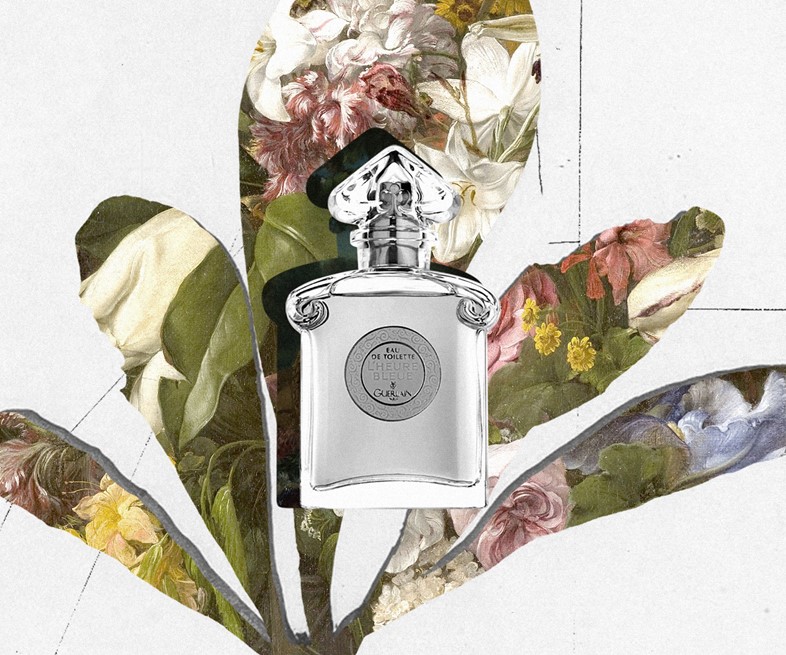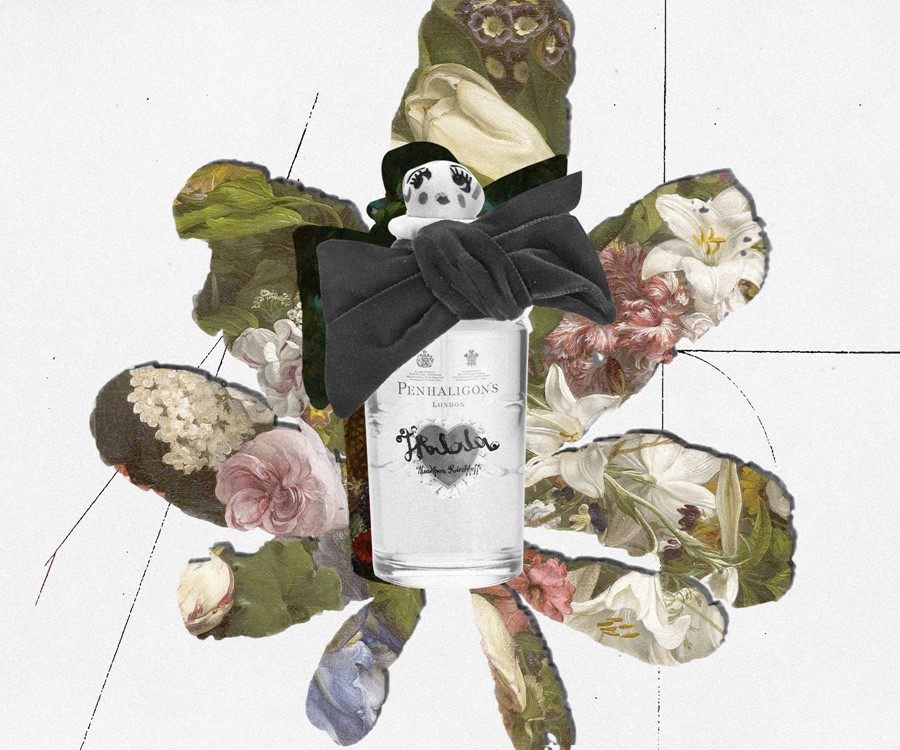In his latest column for AnOthermag.com, Meadham discusses his relationship with scent – or as he describes it, “one of the most important tools for corrective self-recreation”
Edward Meadham has a remarkable mind, to which his work as a fashion designer attests. His creations are infused with references to his loves, interests and obsessions – “Beautiful things, craft and subculture,” as he once told us. In his column for AnOthermag.com, Meadham writes about these obsessions, guiding us through the things that inspire him.
I grew up in a household that was generally averse to cultivated artifice – the most common smell around the house was bleach (due to the constant scrubbing of each surface) or, more occasionally, the Impulse body spray that my mum would spritz about herself before work. At Christmas, it became a custom for my sister, who has never developed an inclination towards decorative frivolities, to receive an array of saran-wrapped baskets, generic gift sets for girls given by distant relatives or school friends. These baskets, jealously coveted by me, were filled with what were generally referred to as ‘smellies’: bath bombs or salts, and myriad small plastic bottles of scented shampoos or body washes. Most remained untouched and the ones that were opened were met with a nose screwed up in disgust from my sister and a “it stinks like a whore’s boudoir in here” complaint from my father (this was his automated reaction to anything that held even a trace of scent). Actual perfume was something so alien to me that I longed for it, something which represented anything glamorously exotic and forbidden, something reserved solely for girls, yet abhorred by all of the girls and women in my life.
I admit, to my great shame, I was so clueless about perfume and had such a terror of body odour during my teenage years, that I still camouflaged myself beneath an acridly toxic haze of Lynx until well after I had moved to London. Much like every other aspect of my life, my journey to perfume discovery was a slow and stunted one, which began by my surreptitious ‘borrowing’ of my flatmate’s bottle of Deci Dela by Nina Ricci. I was initially drawn to this perfume because of its bright pink and matte gold bottle, which reminded me of Christian Lacroix; the scent itself, as I recall, was on the juicy side. At this point my taste in perfumes was totally unformed, I only knew what I did not like: the trend at the time was towards fresh scents in the vein of CK1 and Eau de Issey, or, on the other end of the spectrum, the cloyingly ever-present aroma of Angel by Thierry Mugler. As time passed, so my taste in scents evolved. Naturally, I began to experiment with the more generic perfumes, beginning with Vivienne Westwood’s Boudoir then Coco by Chanel, even Le Dix by Balenciaga, and finally L’Heure Bleue by Guerlain, one to which I have returned to and eventually settled upon ever since, with intermittent flirtations and eventual collaboration with the English perfume house Penhaligon.

Since my very first show, it seemed entirely logical to me to scent the runway and the models, and so I chose Penhaligon’s Hamam Bouquet, a favourite of Oscar Wilde, historically conceived as a man’s fragrance in 1872; it is an almost deliriously heady, animalistic and rose-laden concoction. Perfuming that first show was the beginning of a tradition: each season after I would select a scent from Penhaligon’s catalogue that best matched the collection and with it, the show invitations, the clothes, the models and the show space were all heavily sprayed continuously right up until the first model entered the runway. It became almost magically ritualistic and felt like casting a protective good luck spell over the whole show. After five or six seasons of this, Penhaligon invited us to create our own perfume with them; the result, called Tralala, was one of the most interesting and rewarding projects I have ever worked on. Perfume has possibilities to affect you subconsciously and emotionally and has a unique ability to translate and communicate such deep levels of meaning and reference. It was a culmination of a lifetime’s obsession, manifesting in a medium I had no possibility to create myself, working with the nose Bértrand Duchaufour, I described to him my ideas for the scent in abstract terms, colour and textures – the idea of dusty red velvet, the smell of old make-up, cigarettes, whisky, leather, the antiquity of Guerlain, the sexual notes of Shocking by Schiaparelli. And so he went away to his laboratory in Grasse in the south of France to mix and develop formulas from natural oils, sending one or two trials every few months for us to test and perfect and nearly three years later the finished scent was born.
Perfume has taken an integral and central role in my life, what once was another way to decorate myself, albeit in a non-visual way, has become an integral part of my existence and a psychic armour. Some of the most impressive people I have met in my life were people whose scent entered the room before they did, and I have always related to how Princess Julia described Trojan as a “perfume terrorist”. I use perfume to build a protective barrier between me and the world like a bewitching invisible cloak that protects and envelopes me, a sort of protective but obnoxious way of controlling the atmosphere which immediately surrounds me. I have never felt comfortable with unamended nature, and I view my own physical and environmental realities as an unacceptable proposition, an obstacle to overcome and renegotiate what I adorn myself and my surroundings with; perfume for me is the first and one of the most important tools for this corrective self-recreation.
